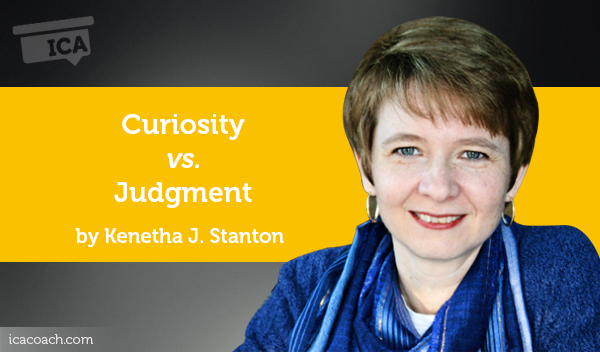 A Coaching Power Tool created by Kenetha J. Stanton
A Coaching Power Tool created by Kenetha J. Stanton
(Transformational Life Coach, UNITED STATES)
Reading
The ways in which we view the world affect what we perceive. Our attitudes, beliefs, and previous experiences all function as filters that shape the way we encounter the people and situations that make up our daily lives. They even influence the way that we see and understand ourselves.
In fact, our mind works hard to try to fit the information it receives into our preconceived expectations. If we believe that life is difficult, our brain selectively catalogs all information it receives that emphasizes that reality. Likewise, if we believe that life is good and full of blessings, our brain selectively notices everything that emphasizes that reality. Therefore, the reality we experience is directly related to what is going on in our mind rather than being a true snapshot of objective reality.
An important key to gaining awareness about the ways that our reality is being shaped by our internal attitudes, beliefs, and expectations is to approach people, including ourselves, and situations with a spirit of curiosity. This allows us to explore reality and our experience of it in ever-deeper ways.
What is curiosity?
When we approach life with a spirit of curiosity, we approach it with an inquisitive interest. We are open to the possibility that there are things that we may not yet know about the person or situation we are encountering. The inquisitive nature of curiosity implies openness to learning about ourselves and others and a willingness to explore our perceptions at a deeper level.
Curiosity
is often a challenging place to be because it causes us to live in a state of not knowing. It takes additional work on our part to ask questions, to explore possibilities, and to remain open to the unknown. The truth is that we never really know all there is to know about a situation or another person. So, cultivating curiosity is actually living more in alignment with reality even when it is not as comfortable as pretending that we have all the answers.
Curiosity
also helps us to acknowledge that we may be wrong. As we ask questions and learn more, we may find that we have made assumptions or have unconscious beliefs that are not true. Cultivating a sense of curiosity means living in a way that allows us to remain open to changing our minds whenever the facts indicate that this is necessary.
While living in a state of curiosity does bring its challenges, it also brings great rewards. Curiosity allows us to release the need to know and understand it all and to bring our perception of the world into closer conformity to objective reality without our baggage coloring our view.
What is judgment?
Judgment is the pronouncement of one’s opinion as if it is truth. While there are times that making a judgment is necessary (such as when we need to choose between right and wrong), most of the time we do not actually have enough information to accurately judge the truth of a situation or the worth of another person. Judgment originates from a black and white vision of the world, but life is mostly ambiguous and often shows up in shades of gray when extenuating circumstances are known.
One of the biggest problems with living in judgment is that it closes us off from additional learning or understanding of the situation. Because we have already decided what our truth is, we are no longer open to the possibility of another way. While living this way is much more comfortable on the surface because it removes ambiguity, it ultimately narrows our world by limiting our incentive to explore. This lack of exploration can leave us stuck repeating the same old patterns over and over because we do not have the ability to consider new options and possibilities.
Judgment also closes us off from other people. When we pronounce judgment on the people in our lives, we push them away by not being willing to remain open to the messiness and uncertainty that comes with being human. This is true regardless of whether our judgments are positive or negative. Putting someone up on a pedestal holds them at a distance and obscures their true qualities. It is as damaging to perceiving the whole person as is condemning someone as being unworthy. In either case, we have reduced a complex human being to a label that we have created, and we expect them to live up (or down) to that label in all future interactions. This does not allow them the space to just show up as themselves in their relationship with us.
Shifting from judgment to curiosity
For most of us, judgment comes naturally. We make judgments about ourselves, situations, and other people all the time—often without even being aware that we have done so. But this is was not always the case. If you spend any time with young children, you will have the opportunity to observe the spirit of curiosity in action. Small children are curious about everything. They are eager to learn about the world around them and are full of questions and open to exploring all kinds of new possibilities.
Be curious,not judgmental.
Walt Whitman